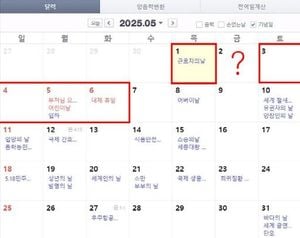On Wednesday, April 2, 2025, the government of Thailand announced the continuation of its welfare assistance program, initially launched in 2022, aimed at alleviating the economic impact on citizens affected by the crisis that began in 2022. As part of this initiative, eligible individuals can access various forms of financial support through their smart ID cards starting in May 2025.
According to Ms. Tiwa Porn Pasuk, the Deputy Director-General of the Comptroller General's Department, the program will provide monthly assistance that includes 300 baht for purchasing essential goods, 80 baht per person for discounted cooking gas over three months, and 750 baht for public transportation expenses. This assistance is designed to help individuals manage their daily expenses and is part of the government's broader strategy to support those facing economic difficulties.
In detail, from May 1 to May 31, 2025, the welfare program will allocate 3,913.56 baht for purchasing goods, 22.54 baht for discounted gas, and 146.34 baht for travel, totaling 4,082.45 baht in financial assistance. Additionally, individuals with disabilities will receive an extra 200 baht per month, bringing their total monthly support to 800 baht. This amount will be transferred directly to their bank accounts linked through the PromptPay system.
Furthermore, the government has also implemented measures to ease the burden of utility bills, providing 213.26 baht for electricity and 26.47 baht for water, which adds another 239.73 baht to the total assistance package, culminating in an overall support amount of 4,578.56 baht.
For citizens seeking more information about the welfare assistance program, they can contact the welfare assistance call center at 0 2109 2345 or the Comptroller General's Department at 0 2270 6400 during business hours. This initiative reflects the government's commitment to providing financial support and ensuring that vulnerable populations are not left behind during these challenging times.
Meanwhile, in Ho Chi Minh City, Vietnam, the local government is actively promoting digital transformation among businesses to enhance their market reach, particularly for agricultural products. This initiative is part of the "Thu Duc Online Market" project, which aims to connect local businesses with e-commerce platforms like Postmart.vn.
Mr. Hoang Tung from the Ho Chi Minh City Department of Industry and Trade highlighted the importance of this digital shift, stating that it will enable businesses, especially those in agriculture, to access broader markets and improve their sales through online platforms. The project has already helped hundreds of businesses enter the e-commerce space since its inception in 2024.
As part of the initiative, the Department of Industry and Trade is providing training and support for businesses to adopt technologies such as barcodes and QR codes for product labeling, which will facilitate better tracking and sales processes. Duong Hong Nhung, a local producer from Saigon, shared her experience, noting that the "Thu Duc Online Market" has significantly increased her product visibility and sales opportunities.
In April 2025, the "Thu Duc Online Market" attracted numerous vendors, including those selling regional specialties. The city aims to transform itself into a smart and sustainable urban area by 2030, with a vision to become a key economic hub by 2045. The digital economy is expected to contribute 40% to the Gross Regional Domestic Product (GRDP).
Mr. Nguyen Huu Hiep, the Secretary of the Thu Duc City Party Committee, emphasized that the city is committed to fostering an innovative and interconnected environment, particularly in logistics and digital transformation in agriculture and business. Currently, there are around 70,000 businesses and nearly 60,000 business households operating in Thu Duc.
The "Online Market" initiative has already facilitated over 16,000 transactions, providing an essential platform for local businesses to thrive in the digital economy. The Department of Agriculture and Rural Development is collaborating with the Department of Industry and Trade to further support businesses in developing their products for e-commerce platforms.
In addition to the online market initiatives, the local government is also organizing regular training courses for businesses and households to enhance their online sales skills and keep up with e-commerce trends. This includes guidance on setting up professional accounts on platforms like TikTok and optimizing content for live streaming sales.
With these efforts, the government aims to ensure that local businesses can not only survive but thrive in the increasingly digital marketplace, thereby contributing to the overall economic development of Ho Chi Minh City and improving the livelihoods of its residents.
As both Thailand and Vietnam navigate the challenges posed by economic crises, these welfare programs and digital transformation initiatives reflect a proactive approach to support citizens and businesses alike, fostering resilience and adaptability in uncertain times.





